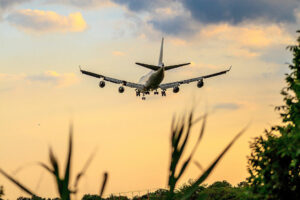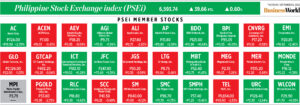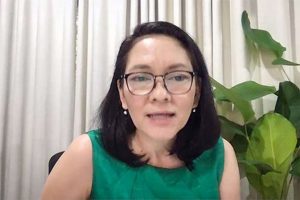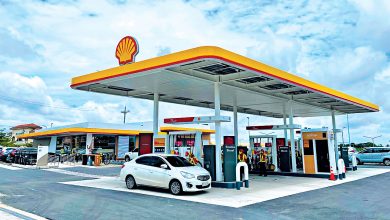Jet fuel prices likely to decline through yearend — DoE

By Ashley Erika O. Jose, Reporter
JET FUEL prices are expected to decline further until the end of the year as production scales up, the Department of Energy (DoE) said.
“Jet fuel is kerosene-based, and we have the same projection; we are seeing the insufficiency gap narrow until the end of December, [so] oil prices will likely be lower by December,” Rino E. Abad, director of the Oil Industry Management Bureau at the DoE, told BusinessWorld by phone on Tuesday.
For November, the Civil Aeronautics Board (CAB) has increased the fuel surcharge to Level 7 from Level 6 in October.
Fuel surcharge is an added fee collected by airlines, based on the movements in jet fuel prices. It is evaluated based on a one-month average of MOPS (Mean of Platts Singapore) prices.
Under Level 7 of the CAB matrix, airlines are allowed to collect a fuel surcharge ranging from P219 to P739 for domestic flights, and from P722.71 to P5,373.69 for international flights.
In September, the CAB raised the passenger and cargo fuel surcharge rate to Level 6 after keeping it at Level 4 in the three months to August.
In October alone, pump price adjustments stood a net decrease of P3.1 for gasoline, P2.95 for diesel and P2.5 for kerosene.
This week, fuel retailers implemented a mixed adjustment of petroleum products. Gasoline increased by P0.45 per liter; while prices of diesel and kerosene fell by P1.25 and P1.20 per liter, respectively.
These price adjustments resulted in a year-to-date net increase of P14.20 per liter for gasoline, P10.45 per liter for diesel and P5.04 per liter for kerosene.
Fuel prices remain volatile, Mr. Abad said, citing the recent forecast of S&P Global Platts, where fuel production insufficiency is expected to be trimmed further by year end. However, oil input costs may still be affected by geopolitical conflicts, he added.
“As far as our analysis is concerned, our expectation is until December, we are seeing an insufficiency gap to narrow further brought by oil cut which means that production is increasing,” Mr. Abad said.
The Organization of the Petroleum Exporting Countries and their allies including Russia (OPEC+) in May announced further output cuts of around 1.16 million barrels per day from May through the rest of the year.
Low-cost carrier AirAsia Philippines said that it will continue to offer sales to offset rising fuel costs.
“AirAsia guests can also seek further relief from the anticipated adjustments in ticket prices brought about by the volatility of global fuel prices by advance booking, especially for future travels as travel and vacation time peak in the remaining months of Q4 for many Filipinos,” Steve F. Dailisan, head for communications and public affairs at AirAsia Philippines, said in a Viber message.
Meanwhile, Cebu Pacific will continue to seek measures to ensure accessible air fares as fuel accounts for 40-50% of its total operations’ cost.
“We encourage our customers to book their flights ahead to avail of more affordable fares. Cebu Pacific will stay true to its purpose of making air travel more accessible,” Alexander G. Lao, president and chief commercial officer of Cebu Pacific, said.
Flag carrier Philippine Airlines was also asked to comment.




